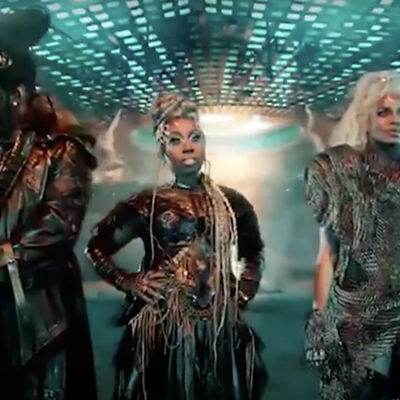Throughout his long career in music journalism, Philip Norman has chronicled in book form the lives of rock A-listers like The Rolling Stones, Jimi Hendrix, Eric Clapton and Elton John. But he’s most associated with tomes about the Fab Four, both singly and individually.
His 1981 work Shout! The Beatles in Their Generation is considered the first objective and “serious” work on the group, bringing to light the less-than-innocent activities of the band in the early days. He’s also done standalone doorstops on Paul McCartney and John Lennon.
Now comes the turn of the “Quiet” one with George Harrison: The Reluctant Beatle (512 pp., $35, Scribner). That wholly appropriate subtitle is one of the main themes: No Beatle had a stronger love/hate relationship with being a Beatle (and all that came with it) than this son of a bus driver and a shop assistant.
“For no more private person can ever have trodden a stage more mercilessly public,” Norman opines.
Harrison was originally brought into the fledgling group’s orbit by schoolmate McCartney, but it was impossible to shake the sort-of “little brother” standing, given his younger age in the group’s pecking order.
Norman doesn’t break much new ground here, relying mostly on previously published materials and his own interviews conducted over decades with many key players (and a few seemingly for this volume).
Though an occasional fresh anecdote pops up. Like the reminiscence of the Scottish schoolgirl who ran into a dejected Harrison on the beach during a 1960 tour stop. She and a friend immediately got the hungry guitarist some “baker’s softies” pieces of bread with jam, while her girlfriend mended a shirt he’d torn in an altercation at the show.
He also relates the story of how Harrison lost his virginity on a bunkbed in the band’s dismal German lodgings—while McCartney, Lennon, and drummer Pete Best watched and applauded profusely when the deed was done.
Much has been written about Harrison’s artistic frustration in getting his songs onto Beatles records—not the easiest thing when the “leaders” of Lennon-McCartney were so prolific.
In the early days, he’d be allotted one song per record, eventually getting more (and there’s no doubt that two highlights of Abbey Road are his “Something” and “Here Comes the Sun”). So it was no surprise that his first Post-Beatles release was the critically and commercially successful triple disc All Things Must Pass, including several tunes that the band had passed on.
The book does delve into Harrison’s seemingly distinct and compacted personality shifts, which often affected others in his life badly. Ringo Starr once mentioned that you never knew if you were going to get the George who had a bag of prayer beads or the bag of cocaine.
Wife Pattie Harrison (who, along with Harrison and Clapton, constituted Rock’s Greatest Love Triangle, the sonic soap opera also detailed here) was often the brunt of severe emotional and verbal abuse, sometimes seen more as domestic slave or pretty arm candy instead of a wife.
At heart Harrison was also quite the horn dog, carrying on dozens of lengthy affairs and one-night-stands during his marriage, sometimes even under the roof that he and Pattie shared. And—shockingly—for a while even with Ringo’s wife, Maureen.
He could also be surprisingly blasé about how his decisions affected others in the real world. When a group of 17 California-based Hell’s Angels showed up at the Apple offices in 1968 (with the Beatles paying for their motorcycles to get from the airport), it was because Harrison had offhandedly invited them while in the U.S But promptly forgot.
When they began to wreak havoc in the building—including demolishing the turkey at the company’s Christmas party and tossing an offending party into the lap of a Santa-dressed John Lennon—Harrison still left their handling to a terrified staff.
Assistant Chris O’Dell said there were Three Georges: One friendly, funny and gossipy. One uptight, hypercritical and sarcastic. And one obsessed with chanting and spirituality seemingly to the blocking out of everything else.
Harrison could be happiest when his fame was obscured and he was not singled out as “Beatle George.” That could come while playing anonymously at the back of the stage as part of Delaney and Bonnie & Friends, or showing up in the chorus line of a Monty Python show (he adored the troupe and even financed some of their movies), costumed out and singing “The Lumberjack Song.”
One of the book’s most harrowing sections details the 1999 incident in which a paranoid schizophrenic Beatles fan broke into Harrison’s home one night. The man attacked Harrison with a knife, eventually stabbing him 40 times, puncturing his lung, and barely missing his heart.
He was eventually knocked into submission by George’s wife Olivia, wielding a heavy lamp base. After years of being truly frightened of what happened to John Lennon after encountering a crazy fan, it must have been all the more horrific and traumatizing.
George Harrison died in 2001 at the age of 58 from cancer that had started in his lungs and eventually spread to his brain. Though keeping in line with his droll sense of humor, his last, posthumous record was called Brainwashed.
Norman’s book will likely go down as the best and most comprehensive single volume biography widely available in the U.S. (Graeme Thomson’s fine Behind the Locked Door is a U.K. import). And it’s a solid choice as a Christmas gift for the Beatles fan on your nice list.
Support Us
Houston's independent source of
local news and culture
account
- Welcome,
Insider - Login
- My Account
- My Newsletters
- Contribute
- Contact Us
- Sign out

Just an average day at the White House in December, 1974: Billy Preston, George Harrison, President Gerald Ford and Ravi Shankar. Harrison gave the President a button with the Hindu greeting "Om." Ford reciprocated with a "W.I.N. (Whip Inflation Now)" badge.
Photo by David Hume Kennerly/Gerald Ford Presidential Archives/Public Domain/Wiki Commons
[
{
"name": "Related Stories / Support Us Combo",
"component": "11591218",
"insertPoint": "4",
"requiredCountToDisplay": "4"
},{
"name": "Air - Billboard - Inline Content",
"component": "11591214",
"insertPoint": "2/3",
"requiredCountToDisplay": "7"
},{
"name": "R1 - Beta - Mobile Only",
"component": "12287027",
"insertPoint": "8",
"requiredCountToDisplay": "8"
},{
"name": "Air - MediumRectangle - Inline Content - Mobile Display Size 2",
"component": "11591215",
"insertPoint": "12",
"requiredCountToDisplay": "12"
},{
"name": "Air - MediumRectangle - Inline Content - Mobile Display Size 2",
"component": "11591215",
"insertPoint": "4th",
"startingPoint": "16",
"requiredCountToDisplay": "12"
}
]
KEEP THE HOUSTON PRESS FREE...
Since we started the Houston Press, it has been defined as the free, independent voice of Houston, and we'd like to keep it that way. With local media under siege, it's more important than ever for us to rally support behind funding our local journalism. You can help by participating in our "I Support" program, allowing us to keep offering readers access to our incisive coverage of local news, food and culture with no paywalls.
Bob Ruggiero has been writing about music, books, visual arts and entertainment for the Houston Press since 1997, with an emphasis on classic rock. He used to have an incredible and luxurious mullet in college as well. He is the author of the band biography Slippin’ Out of Darkness: The Story of WAR.
Contact:
Bob Ruggiero
Trending Music
- Top 10 Butt-Rock Bands of All Time
- The Marías Go Deep in Concert
- Houston Concert Watch 7/24: Zach Bryan, Koe Wetzel and More
-
Sponsored Content From: [%sponsoredBy%]
[%title%]

Don't Miss Out
SIGN UP for the latest
Music
news, free stuff and more!
Become a member to support the independent voice of Houston
and help keep the future of the Houston Press FREE
Use of this website constitutes acceptance of our
terms of use,
our cookies policy, and our
privacy policy
The Houston Press may earn a portion of sales from products & services purchased through links on our site from our
affiliate partners.
©2024
Houston Press, LP. All rights reserved.






